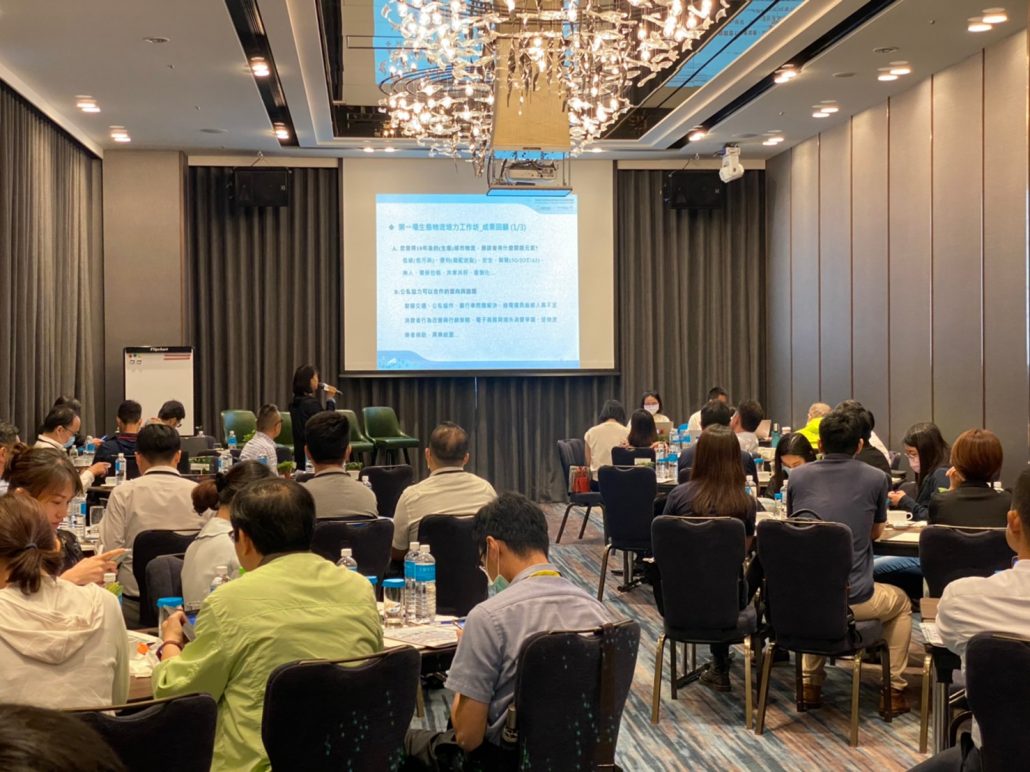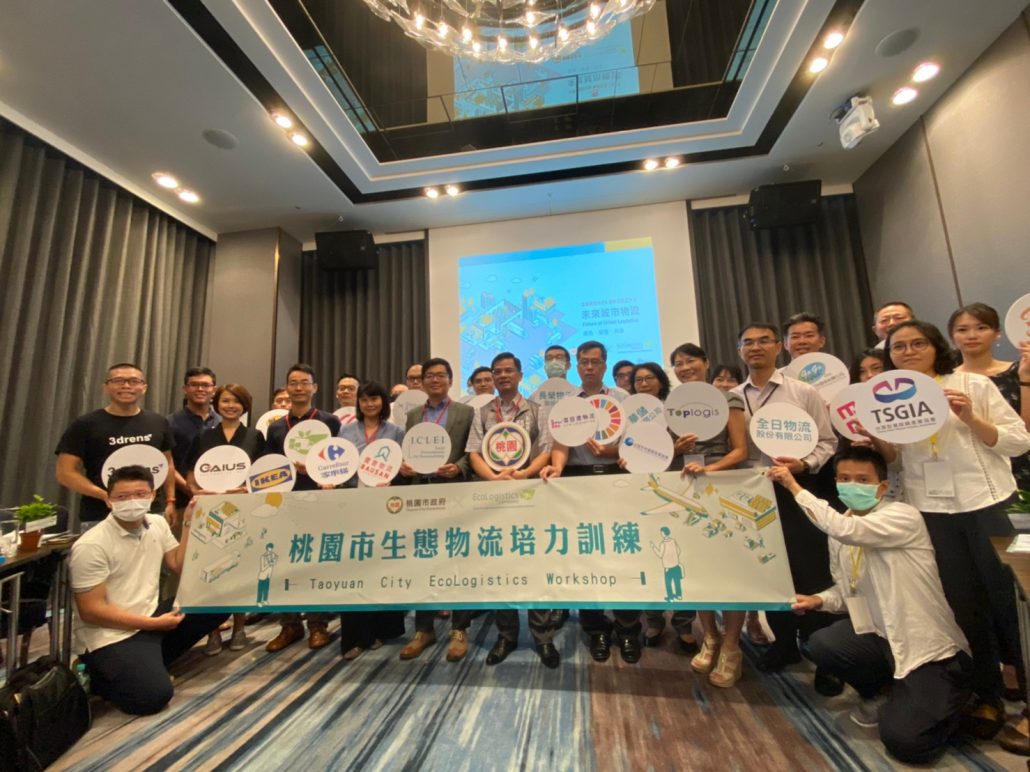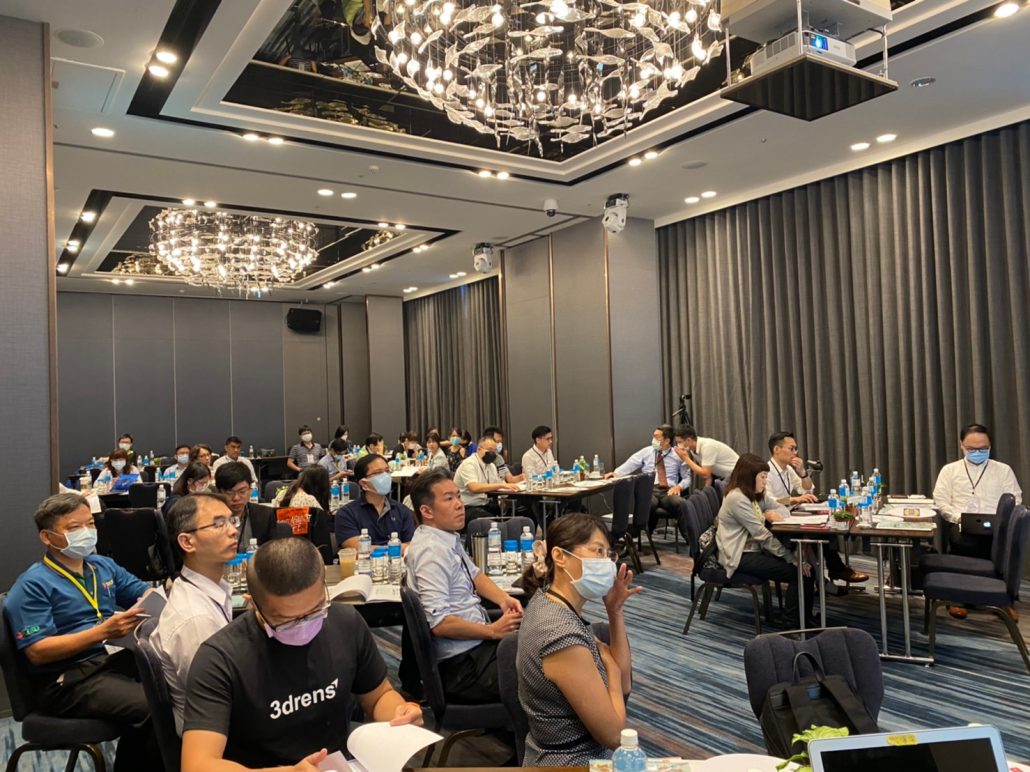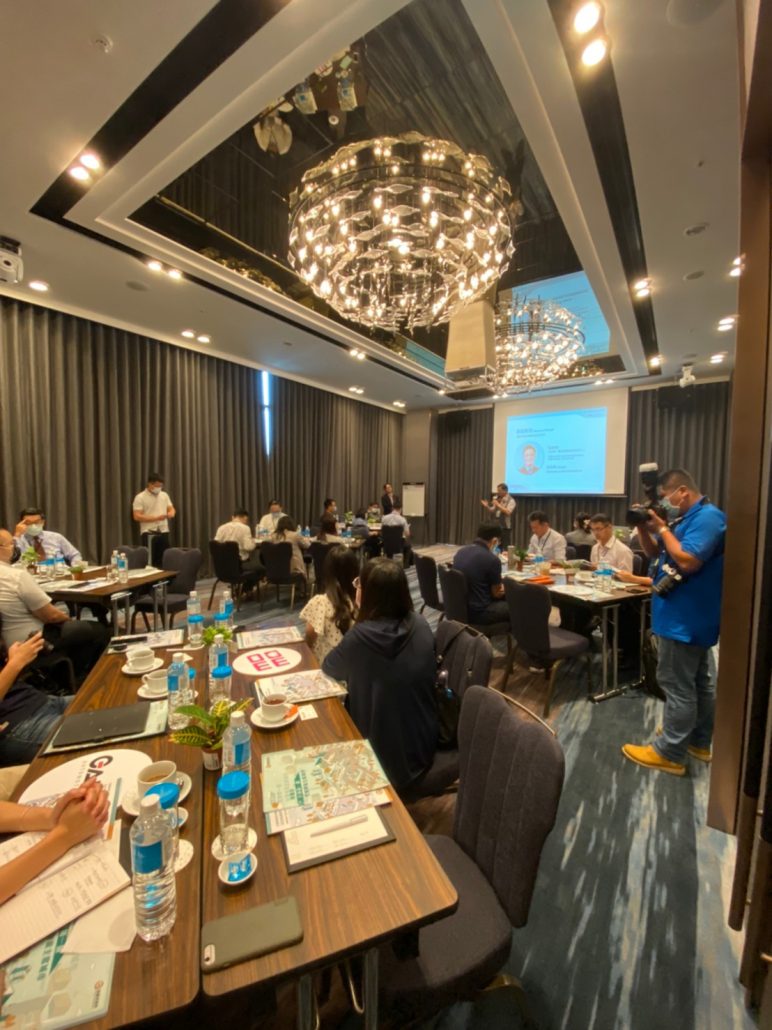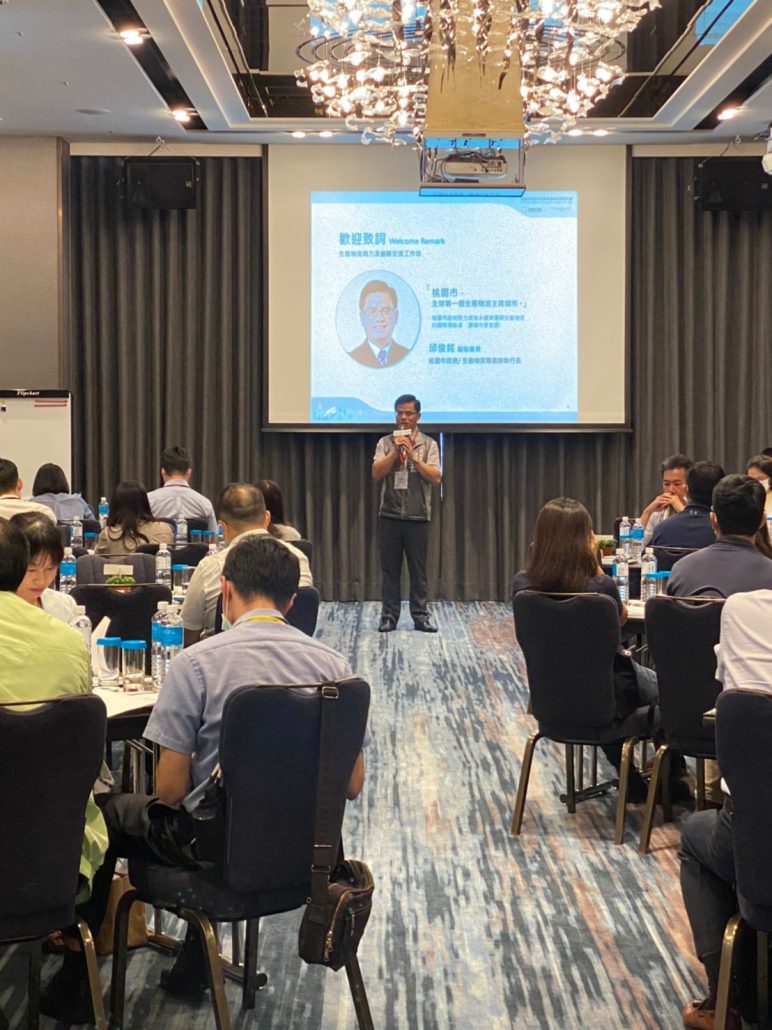The logistics and freight sector is a large contributor to pollution and greenhouse gas emissions, particularly in the developing countries dependent on manufacturing industries. In China, freight emissions account for 70% of the transportation sector’s emissions. According to statistics from the OECD countries, urban freight and last-mile emissions represent 25% of the emissions from the logistics supply chain.
90% of trucks in Asia are self-employed, making promotion and implementation of large-scale sustainable logistics measures challenging as they are limited by the capital or technology, such as high-efficiency transportation equipment, better tires. While some cities impose truck restriction in the urban areas, such as Bangkok, and Ho Chi Minh City, such blanket ban is challenging as people’s livelihood, and economic growth is dependent on the logistics sector.
Taoyuan City invited 34 key logistics companies and organizations to the “Future of City Logistics: Green, Smart, and Shared” workshop on 11 August 2020, such as IKEA Taiwan, Evergreen Logistics, Taoyuan International Airport, MOMO e-commerce company, T-Cat delivery. The goal of the stakeholder exchange is to gain insights into the innovations from the different private companies and the sharing of knowledge and ideas for the Taoyuan City Government.
Urban logistics in Beijing
Boyong Wang, Director of Strategic Relations of Smart Cargo Center and Asian Representative of Smart Freight Center, shared Beijing’s experience in urban logistics. Beijing is a megacity with a population of more than 20 million. As it is an inland city, it is two-to-three times more dependent on the import of goods and materials compared to other cities like Tokyo and London. Freight is also a significant cause of traffic congestion, mainly due to loading/ unloading activities, around logistics distribution centers. The scale and number of freight companies are small and very decentralized, making it difficult to govern.
Since 2008, Beijing has progressively implemented a green fleet policy and the obsolete vehicle elimination policy to phase out highly polluting freight vehicles. The city has played a crucial role in the optimization and adjustment of the vehicle structure. The process started from the data acquisition, learning from the Tokyo metropolitan area’s large-scale logistics survey, which included the cargo owners, freight routes, distribution terminals, and freight facilities. The critical measures identified are:
- Demand-side management of goods, such as car-free carriers and off-peak delivery
- Green freight incentive policies centered on encouraging high-quality enterprises to save energy and reduce emissions
- Promotion and application of clean transportation equipment and technology
- Transformation of intensive transportation modes such as multimodal transportation
- The re-planning and functional setting of cargo distribution centers
Improving urban logistics in Taoyuan City
Through the presentations from the different experts, logistics operators, and shippers, there are five leading suggestions for Taoyuan City to plan for the future of urban logistics, including:
- Understanding freight systems through surveys to acquire the necessary information on freight hotspots, carbon emissions in the metropolitan area. For example, London focuses on the proportion of freight in the traffic volume, the number of freight vehicles entering the city on weekdays to make policy decisions;
- Standardize and adopt technologies to foster resource sharing amongst logistics operators, such as charging devices, packaging size, parking bay configuration. The city is considering setting up self-pickup stations, warehousing stations in the communities;
- Leverage existing infrastructure and resources by using public transportation for freight, setting up a metropolitan logistics transshipment center to reduce the last-mile delivery distance and improve the energy efficiency of parcel shipment;
- Policy incentives to encourage companies to adopt green technologies or less polluting vehicles. For example, government-certified transportation companies are provided priority loading and unloading bays;
- Pre-planning and efficient scheduling to make fair use of off-peak delivery scheduling or allow receivers to self-collect goods through various systems and technologies.
More information about what Taoyuan City and EcoLogistics Community here




